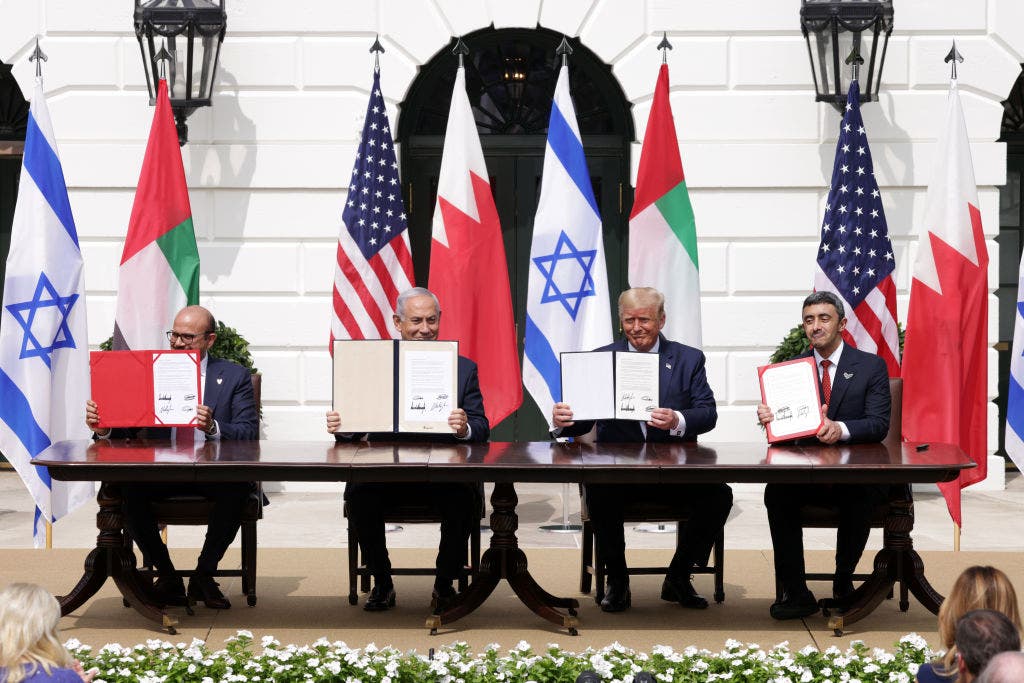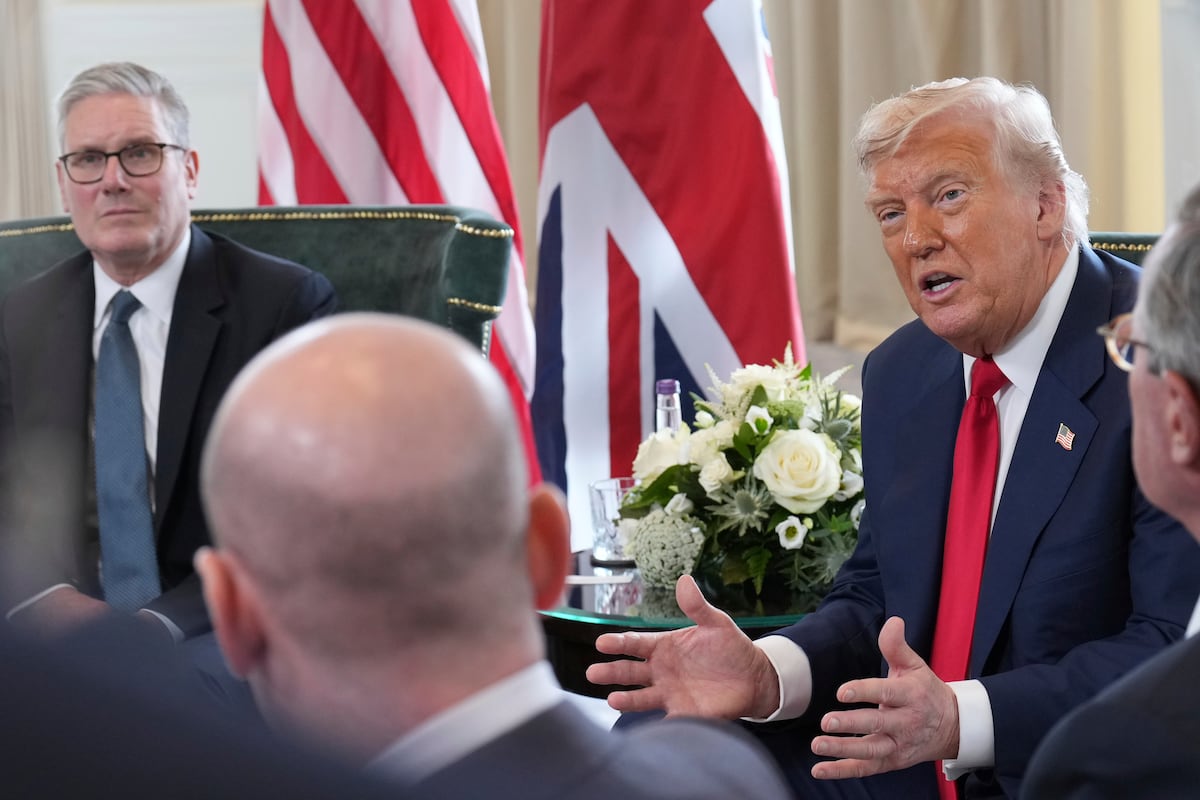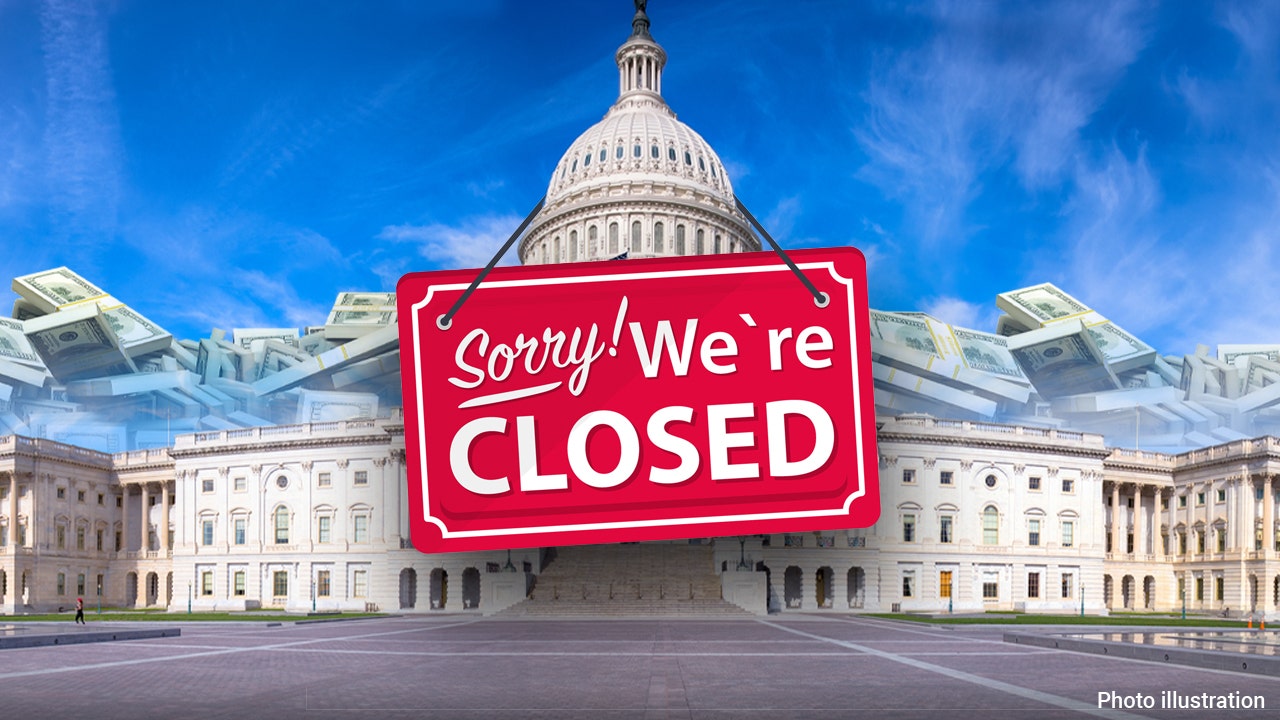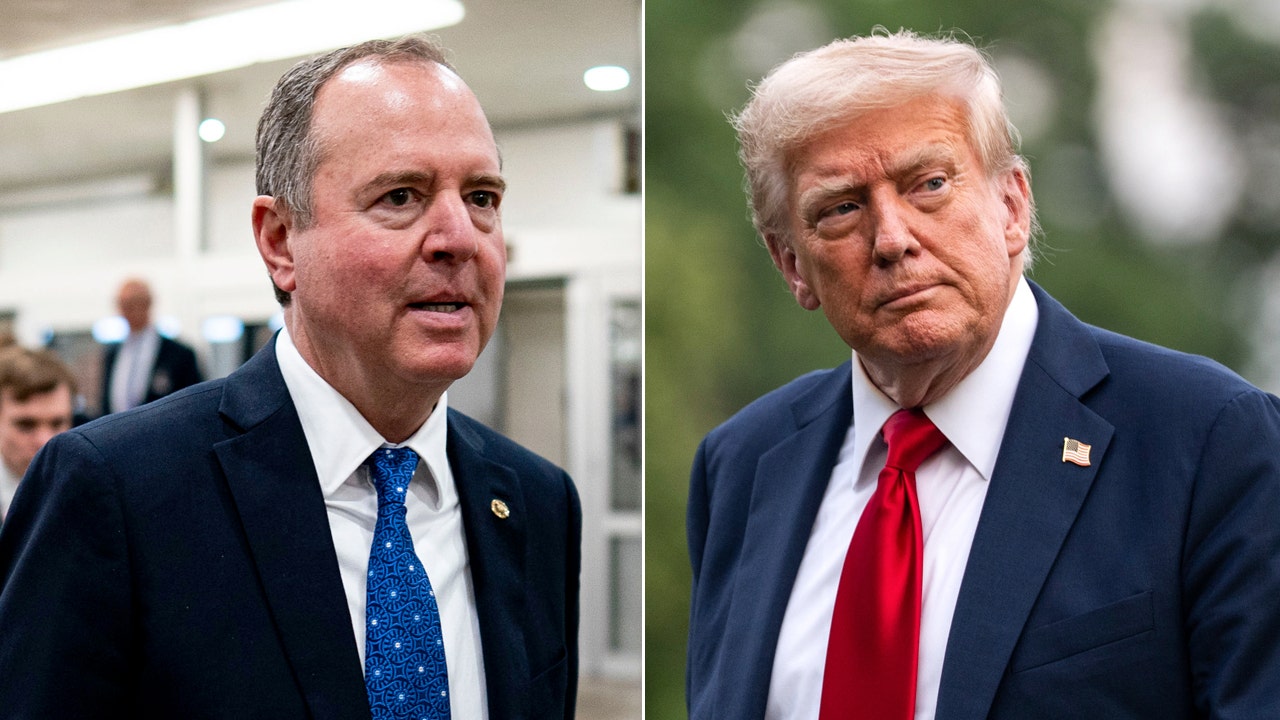Trump’s landmark deal is the real key to peace in the Middle East

NEWYou can now listen to Fox News articles!
The idea that Middle East peace cannot and should not advance without a formal agreement between Israel and the Palestinian Authority is outdated and demonstrably untrue. Indeed, it has done little but exacerbate conflict over the last 30 years and undermine U.S. interests in the region.
The Abraham Accords, brokered by President Trump in 2020, offer a far more reliable solution. They provide a new paradigm for peace between Israel and all of its neighbors, including the Palestinians.
President Donald Trump obviously deserves the Nobel Peace Prize for breaking with the failed Oslo peace process paradigm still sanctified by legacy media and a bipartisan community of foreign policy elites, and for building new bridges of mutually-beneficial cooperation between Israel and its Arab neighbors. Those truly interested in Middle East peace should work to expand the circle of regional normalization and integration. Doing so will not only advance tolerance, understanding and growth in the Middle East, but also provide a pathway towards a lasting solution to the Israel-Palestinian conflict.
TRUMP PRESSURES ISRAEL TO END GAZA CONFLICT AS HE EYES ABRAHAM ACCORDS EXPANSION
This would certainly surprise former Secretary of State John Kerry, who in 2016 declared that peace between Israel and the Arab world would be impossible in the absence of an agreement between Israel and the Palestinians. “There will be no separate peace between Israel and the Arab world,” he declared. “No, no, no, and no.”
The Abraham Accords revealed the fallacy of Kerry’s claim.
The Accords between Israel, UAE, Bahrain and Morocco led to a surge of people-to-people cooperation in countless areas, from green hydrogen to advanced medicine, from wildlife preservation to water recycling, and from youth sports to interfaith dialogue. Trade, tourism and innovation cooperation quickly grew.
Even in the outbreak of war begun by Hamas’s October 7, 2023 terror attack, trade continued to rise. Trade between Israel and the UAE grew by 10% in 2024 as compared to 2023, between Israel and Bahrain by 843%, and between Israel and Morocco by 40%.
Unfortunately, despite the historic processes led by President Trump, which led to four Arab countries joining the Abraham Accords in a matter of months, the Biden administration failed to expand the Accords, due in part to President Biden’s continued adherence to the failed Kerry fallacy.
Nevertheless, despite the Biden administration’s inability to add any additional countries, the prospect of expanded peace and cooperation was still seen as a grave threat to the Iranian regime and its terror proxies, including Hamas. This fear of Abraham Accords expansion was one of the motives behind Hamas decision to launch its attack on Israel on October 7, 2023.
Twenty-one months since this terrorist massacre and the subsequent war, the Abraham Accords have endured. Diplomatic, strategic and trade ties between Israel and its Accords partners remain stable. 2025 saw the continuation of high-level diplomatic meetings, such as the repeated visits by Israel’s foreign minister to Abu Dhabi, and the ratification of important bilateral agreements between Israel and its Accords partners.
In addition, the Abraham Accords have had a direct positive impact on the delivery of humanitarian aid to Gaza. Israel has worked closely with the UAE and Morocco on the delivery of such aid, coordination made possible due to the trust built between Israel and its Accords partners since 2020.
CLICK HERE FOR MORE FOX NEWS OPINION
The return of President Trump to the White House has created renewed momentum towards regional cooperation and integration. The potential for regional peace is obvious to many of America’s allies in the region. The benefits of such a peace could include not only those to be derived from bilateral relations with Israel and expanded ties with the United States, but those connected to groundbreaking multilateral initiatives such as the India-Middle East-Europe Corridor, and a Middle East Security Alliance.
The Palestinian Authority, for its part, stands at a crossroads. Its leader, Abbas, now in the 20th year of his first four-year term, oversees an Authority that continues to promote incitement, while failing to combat corruption or advance meaningful economic growth. In the coming post-Abbas era, the PA will need to decide: Does it embrace the Abraham Accords spirit of cooperation, dialogue and people-to-people peace? Or does it continue the rejectionism that has led it nowhere for the last 30 years, while keeping the radicalized Palestinian people dependent on international largesse?
Rather than attempting to delegitimize President Trump’s achievement in advancing the Abraham Accords, all who claim to care about the Palestinians or Middle East peace should seek to strengthen these historic agreements, and encourage the Palestinians to reject the failures of the past. This is the path toward lasting peace and prosperity in the Middle East, in line with the vital interests of the United States.







